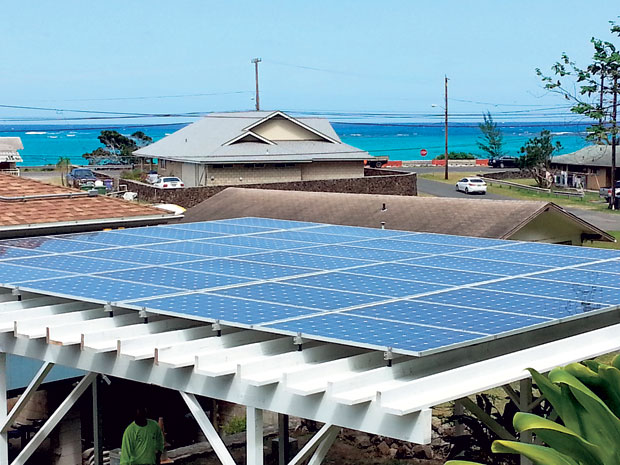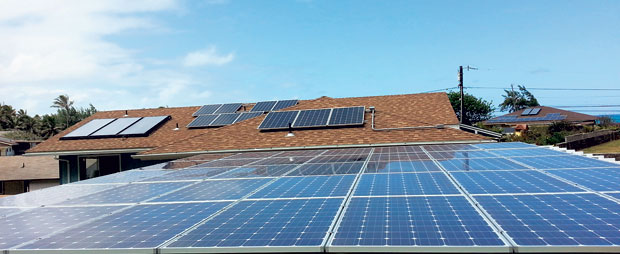Especially when dealing with something as potentially dangerous as electricity, you want a contractor that puts safety at the forefront and is reliable and professional. That describes Ron D Electrical Service LLC in Waipahu to a “T.”
“A lot of houses in Hawaii were built around the 1950s or before and during those days, the average electrical load was much smaller,” explained owner and Kapolei resident Ron D. “We didn’t have all the electronic devices we have nowadays — computers, microwaves, photovoltaic systems, etc. — so the average home was designed for only around 70 to 100 amps.

“Now, with all the extra electrical appliances we use, basic houses should be designed to carry a 100to 200-amp load. You should check that your home can carry that sort of load or whether it needs to be upgraded.”
Common symptoms of a home exceeding its load are that your circuit breaker constantly trips or that it won’t re-engage or that it won’t break at all (which is the worst, because then the wires will just burn through).
Another hazard Ron said to watch for is electrical arcing from your wall outlet.
“Arcing usually means there’s a bad connection in the switch someplace, that the outlet is aging. It’s a fire hazard because the outlet usually is near a source of combustion (the wall).
“Surge protectors don’t protect an appliance from arcing; they’re designed to protect against a single surge of power.”
However, many newer homes already have arc-fault protectors installed that are very sensitive to any sort of problem with the circuit.
Also, with Hawaii’s warm climate playing host to a variety of rodents and insects, it’s important for homeowners to inspect the electrical wiring in their attics or basements at least twice a year for wear or exposure.
“We had to re-wire one house in Central Oahu due to rats eating right through the wires,” recalled Ron. “We call it the ‘cheese grater effect’ because the damage looks like a piece of cheese.

“It’s important for residents to keep their wiring in good shape because rewiring a house can be costly — anywhere from $8,000 to $15,000.”
Ron is dedicated to providing the best service possible, even when it means correcting another contractor’s mistakes to help the customer out. “At one house we were re-wiring in Hawaii Kai, the previous firm had put in too many ’90s (wires bent at 90-degree angles), so we had to fix that.
“Then another problem we saw was that the earlier contractor had incorrectly connected the line for the solar system, which could’ve caused an overload. My crew is trained to correct these small things so we provide the most professional service possible to the customer.”
RON D ELECTRICAL SERVICE LLC
contact // 744-5630 • 744-9255
address // 91-1229 Kahuanui St.
web // www.rondelectricalservice.com
See more articles from: Ron D Electrical Service LLC